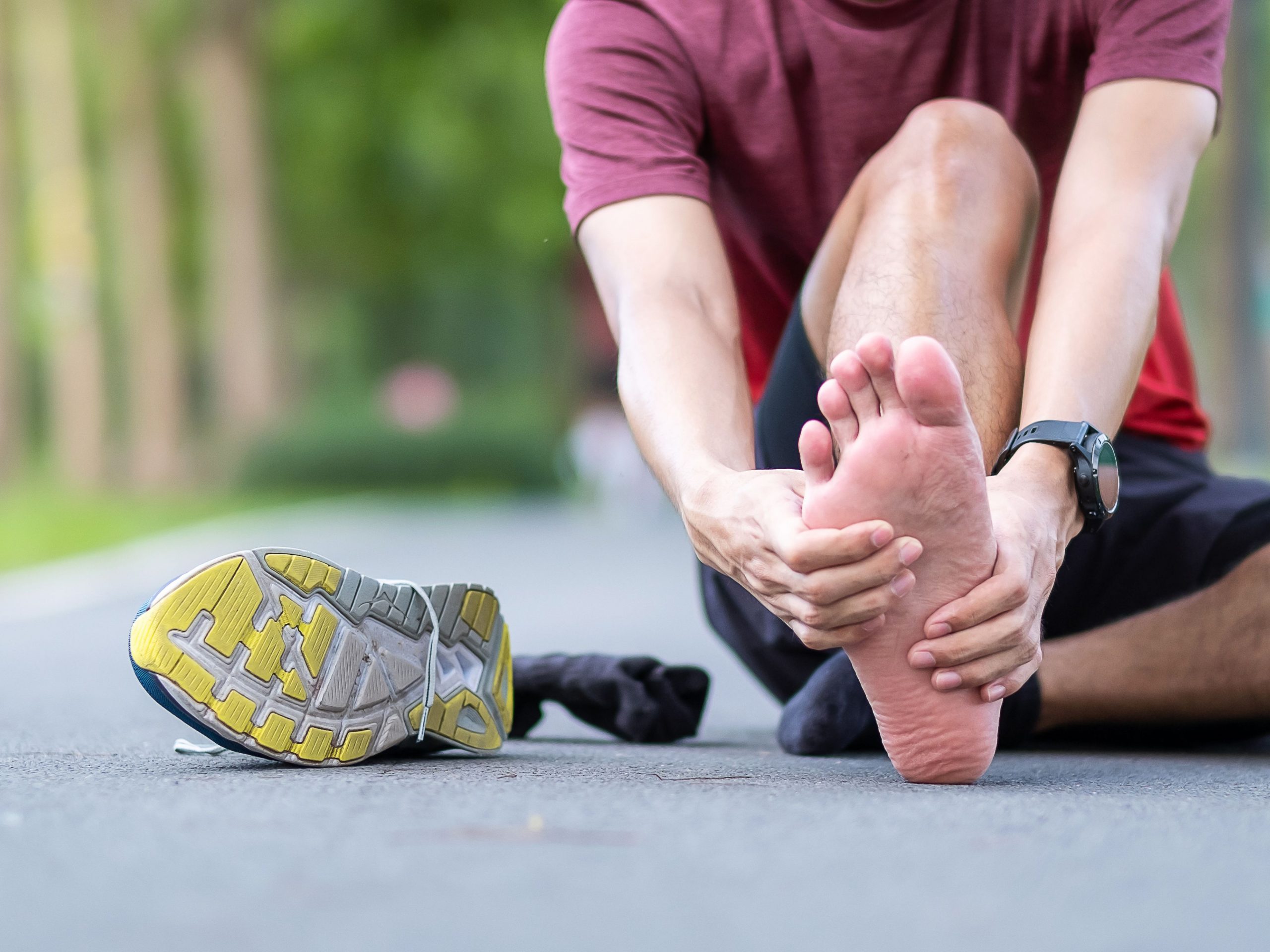What is plantar fasciitis?
Plantar fasciitis is an inflammatory condition affecting the plantar fascia which is a soft tissue located at the arch of your foot connecting heel to toes. In some cases, the condition can be mild and resolve by itself, however, in other cases, it may be debilitating and impact the quality of life.
What causes plantar fasciitis?
There are several reasons why people develop plantar fasciitis. Most commonly it is classified as an overuse injury particularly in runners when they either are not allowing themselves enough rest, increasing the intensity and distance too rapidly or wearing poorly fitted footwear. It is not uncommon to have more than one factor that’s causing it. Also, plantar fasciitis could be related to occupations which require long hours of standing or walking throughout the day. Moreover, altered biomechanics of the foot is also a contributing factor to development of the condition, particularly if you have raised arch of the foot or abnormal bone growth around your foot.
What are the symptoms of plantar fasciitis?
- Pain at the arch or heel of the foot which is worst in the morning or after prolonged time of inactivity.
- Pain eases with physical activity, however, in severe cases, you might be unable to do any physical activity.
- You might find it difficult to raise your toes off the floor.
- Swelling around the heel area could be present in some cases.
What is a sports massage?
It is a type of massage which is taught as a part of syllabus in degrees such as Sports Therapy or Sports Rehabilitation. The qualification of sports massage therapist may also be obtained doing a separate course at level 3, 4 or 5. Because there are no laws to protect the public from incompetence of certain therapists, make sure to check that your therapist is registered with an appropriate governing body to show that the therapist is professional, committed and has required qualifications to deliver a treatment of a good standard.
Also, sports massage can feel very similar to Swedish or deep tissue massage as techniques used are essentially the same. Those involve:
- Effleurage – gentle and soothing strokes over the skin to warm up muscles and get them ready for deeper work.
- Petrissage – is kneading and wringing of the muscles whilst applying a deep pressure. It helps to loosen the muscle tension.
- Tapotement – is percussion techniques which can be applied using fingers, edge of the hands or cupped hands. This type of technique helps to revitalise the worked muscles, increase the excitability and warm them up for a physical activity.
- Friction – is very focused and deep pressure applied on a specific area of the muscle. It helps to break down adhesions and scar tissue as well as loosen off tight muscles.
What are the benefits of sports massage?
There are several benefits of sports massage. Those include:
- Relaxation.
- Release of muscle tension and spasm.
- Release adhesions.
- Break down scar tissue.
- Improved circulation.
- Increase the range of motion of joints.
- Improves muscle flexibility.
- Helps to alleviate delayed onset of muscle soreness (DOMS) after physical activity.
- help to manage anxiety and stress.
- Helps to warm up and cool down.
- Increases efficiency of recovery after an injury when used with appropriate rehabilitation programs.
How does sports massage help with plantar fasciitis?
Sports massage can help with plantar fasciitis by increasing the circulation in the area which would provide more blood and nutrients, hence, aid the recovery. It also helps to break down scar tissue or adhesions relaxing the muscle which can help to reduce the intensity of the symptoms.
It is important to bear in mind however, that sports massage will feel very uncomfortable, and you will very likely feel sore after the treatment. Also, sports massage on its own is unlikely to help you to cure plantar fasciitis as you will have to do certain exercises as well as make some lifestyle changes while recovering from the condition.
We hope this information is useful for you. If you need advice or have any questions about our treatments, please contact us. You can find us in Mill Hill Broadway and Islington. We are always happy to help. If you like this blog, please share!
References:
http://jasoncartermd.com/resources/pdf/Plantar%20Fasciitis.pdf



